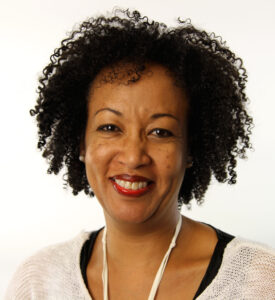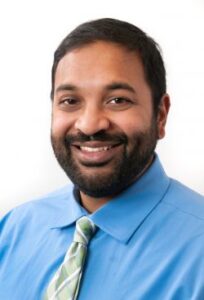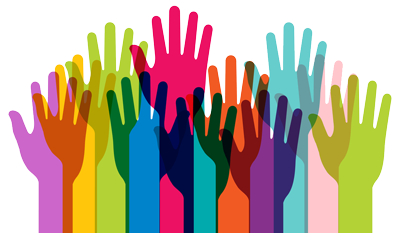45% OF AGING TWIN CITIES SMALL BUSINESSES OWNERS MAY SHUT DOWN
Transitioning to employee-owned companies offers tangible solution to region’s “silver tsunami”
Nexus Community Partners, a nonprofit working to promote community wealth building among Twin Cities’ cultural communities, today released a comprehensive data presentation in partnership with its national partner Project Equity, demonstrating which small businesses in the Twin Cities region are most vulnerable to permanently closing, consolidating or being bought by out-of-area buyers within a few years. It also identifies industries to be impacted and the vast numbers of employees affected. The data is being released in an effort to demonstrate the opportunity for these Minnesota-based small businesses to transition to employee-ownership and the potential to strengthen local economies.
Project Equity, a nonprofit that fosters local economic resiliency, compiled the data as part of a broader national data presentation to educate the workforce and small business communities about the “silver tsunami” of businesses owned by baby boomers at risk of closure or consolidation. “For the Twin Cities region, we’re particularly concerned that if businesses close down or are consolidated, communities of color will suffer,” said Elena Gaarder, Program Officer at Nexus Community Partners.
Alison Lingane, co-founder of Project Equity adds, “While it’s important to draw attention to the data and its implications, it’s necessary to also understand that we have a real possibility to sustain small businesses for the long term by transitioning some of them to broad-based employee ownership.” Small businesses provide 47.9% of all private sector jobs in the Twin Cities region, so this ownership changeover risks not only the loss of local business ownership, but also job loss, and local business tax base. “Employee ownership is one of the best ways to keep thriving businesses locally rooted into the next generation.” Business conversions also provide the opportunity to build more equitable communities. According to Repa Mekha, President and CEO at Nexus, “Business conversions are a perfect intersection between large scale job retention and broad-based wealth creation.”
The data presentation aims to make the business ownership changeover tactile and shows 26,000 privately-held businesses with employees—44.7% of the total—spread across the Twin Cities metro region and segmented by industry. The data presentation also shows 320,000 employees, $82.6 billion in total sales, and $13.8 billion in payroll from these companies, painting the picture of the true impact of potential business closure or consolidation. The data are drawn from the most recent U.S. Census Survey of Small Business Owners (2012).
“Considering the existing employment disparities between whites and people of color, it is clear that growing more employee-owned businesses is not only a viable solution, but a critical one,” said Gaarder. She said the challenge and opportunity will be in educating stakeholders about the threat posed by small business owner retirements; and the huge prospects for building community wealth.
“Ask anyone living within the Twin Cities region, and they will tell you that we’re currently facing income and wealth disparities at record levels. Coupled with the impending silver tsunami and limited success of workforce development initiatives, our communities are facing even greater challenges,” she added. “But with the data Nexus and Project Equity unveiled, we are now one step closer to understanding the benefits of employee ownership and can consider it a tangible solution.”
For Nexus, business conversions to employee ownership are part of its community wealth building initiative that seeks to promote local and broad-based ownership and encourage economic practices rooted in cultural communities.
For more information, contact Elena Gaarder at egaarder@nexuscp.org
About Nexus Community Partners: Nexus is a Twin Cities-based nonprofit organization working to build more engaged and powerful communities of color. Nexus uses a community wealth-building framework to challenge practitioners, community leaders and investors to support strategies that are culturally relevant and afford multiple access points for people of color to generate wealth; and to own the wealth they have helped to generate.
About Project Equity: Project Equity is a national nonprofit organization dedicated to expanding broad-based employee ownership—especially for low-wage workers—to strengthen our local economies. Project Equity envisions a future where business decisions are made through a lens of what is good for employees and communities, leading to businesses that are more successful, communities that are more resilient, and workers who have stable jobs and economic security.



 Annelise came to Nexus in the summer of 2016 as an intern through New Sector Alliance’s nonprofit summer fellowship program. Her internship focused on supporting the Better Bus Stops program to promote transit equity in the Twin Cities region. Annelise: After my fellowship ended, I was hired on as a Capacity Building Assistant. In this role, I continue to primarily work on Better Bus Stops while also assisting with development & fundraising, and providing administrative support to the Director of HR & Finance.
Annelise came to Nexus in the summer of 2016 as an intern through New Sector Alliance’s nonprofit summer fellowship program. Her internship focused on supporting the Better Bus Stops program to promote transit equity in the Twin Cities region. Annelise: After my fellowship ended, I was hired on as a Capacity Building Assistant. In this role, I continue to primarily work on Better Bus Stops while also assisting with development & fundraising, and providing administrative support to the Director of HR & Finance.